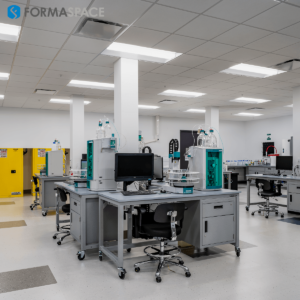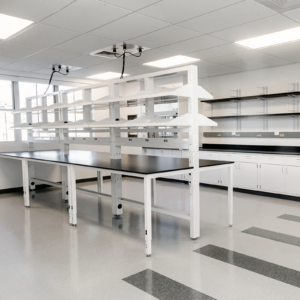As a provider of unique furniture solutions to laboratory facilities at major Fortune 500 companies for over 35 years, Formaspace has developed unique insights into the best practices used in today’s modern lab facilities. One key observation is the increasingly important (and diverse) role of laboratory managers.
Over the past 35 years that Formaspace has been working directly with Lab Managers, we’ve seen a lot of changes in the industry. Indeed, today’s lab managers wear multiple hats that require them to develop a broad set of effective management skills — ranging from chief problem solver to team facilitator.
If you are contemplating a career move into laboratory management or know someone that is, we’ve compiled a list of the top 10 effective management skills that every laboratory manager should master.
Let’s get started:
1. Laboratory Managers Need to Be Good Business and Project Managers
Overview: Don’t get us wrong. We’re not saying scientific research has to be all business (some of the best discoveries have been made in unorthodox ways). Instead, we’re saying that the role of laboratory management is to provide services to the investigators in a reliable businesslike manner, in order to provide seamless support for scientific research (or related services functions, such as in the case of IT labs).
Scope of Activities: Establish a vision and mission with both detailed short-term plans as well as long-term plans (5+ years out) that track progress on specific project goals, time management, and budgetary issues, such as income sources, spending, salaries.
Recommendations: Lab Managers overseeing large laboratory settings (in universities, government or healthcare / pharma) might benefit from business classes or an MBA in order to manage complex budgets and other requirements. Certification from PMI as a Project Management Professional (PMP) could also be helpful. Countless books, seminars, and online classes teach business management skills. If you are new to all this, then The One Minute Manager and Putting First Things First are two resources to look into.
2. Laboratory Management Typically Oversees Acquisition of Capital Equipment, Purchasing of Supplies and Services, and Inventory Control
Overview: In a small laboratory environment, much of this work will fall directly on the lab manager, who may be directly responsible for allocating budgetary funds (from a research grant for example). In larger organizations, the lab manager may have to interface with dedicated purchasing staff members. In either case, it’s important to adhere to rigorous government* policies that regulate service contracts as well as asset acquisition, use, and disposition activities.
(*Government contracts may require sourcing from vendors, like Formaspace, that are listed on GSA purchasing schedules.)
Scope of Activities: Set spending priorities during each budgetary cycle; identify requirements for capital equipment; investigate vendor options; ensure timely ordering procedures for consumable supplies (including bidding out if required); establish service contracts (such as for disposing of hazardous wastes); negotiate with the company or institution hosting the lab over assigned overhead costs to be borne by your budget; set up inventory tracking and control system as well as establish procedures to protect valuable or potentially dangerous assets from misuse or theft.
Recommendations: In addition to the recommendations for business and project management, new laboratory managers might look into taking classes in purchasing management. If you are working with the government or military, look for online seminars and guides (from the GAO, GSA, etc.). Establishing friendly contacts with the purchasing department of your company or institution early on is also a good idea (rather than waiting until there is a confrontational issue at hand). Ideally, you will be able to find a mentor who can help you understand the ins and outs of rules and procedures already in use at your institution or company.
3. Laboratory Managers Need to Develop Effective Management Skills in Public Relations and Internal Communications
Overview: Do you wonder why some laboratories always seem to be promoted in the news, or they have widespread support throughout the entire organization? Conversely, have you witnessed reports of laboratory errors or accidents that made the news and put the lab in the worst possible light? These are just two examples of how good (and bad) public relations and internal communications programs can affect your laboratory workplace.
Scope of Activities: Public Relations generally refers to a wide range o
f communication programs directed outside the organization (from community relations, to press coverage, to trade fairs), while internal communications programs are directed at internal audiences (to educate and promote positive awareness of your activities). Depending on the size of your organization, you may need to liaise with existing communications teams (or external agencies), or you may need to develop these resources yourself.
Recommendations: Generally speaking, having a robust external and internal communications program (assuming your work is not classified or a trade secret) will help win over support for activities taking place in your lab (which can be very useful at budget allocation negotiations). Working with your existing communications team (if any), you should consider hosting press events, public tours (if appropriate), provide useful press releases and social media postings to gain local (if not national) coverage. Consider providing media training to lab researchers (such as lead investigators) to improve their ability to communicate in language that targeted audiences can understand — using video recordings for feedback sessions can be very useful. Practice in advance how you would respond to a crisis (such as an accident or another adverse incident) by conducting realistic dry runs on how to communication with the press during that time. Make sure you know the private cell numbers of key administration staff who will need to be looped in at short notice.
4. Laboratory Management is Often in Charge of Education and Staff Development Programs for the Lab Team
Overview: Face-to-face meetings at scientific conferences, scientific journal subscriptions, and training classes are a few examples of education and staff development programs that will help lab team members grow in their field while improving morale at the same time.
Scope of Activities: Participation in most education and development programs (such as conferences and training classes) should be planned far in advance. Managers will need to identify and prioritize which activities and purchases will provide the most benefit for the lab — as well as make judicious choices for who will participate. Associated costs — ranging from time away from the lab to subscriptions, tuition, admission and travel expenses — will need to be budgeted for in advance.
Recommendations: Joining the relevant scientific or trade associations that govern your lab’s area of interest is a good place to start. Don’t overlook participation in standards committees or governing boards (if relevant) if you are looking for ways for your team members to network or raise your organization’s profile. Identifying mentors who can provide guidance to lab team members is another good approach. If travel expenses are an issue, but you have good facilities for hosting guests at your company or institution, consider creating your own event to bring relevant experts to your facility (this is an ideal initiative for lab interns to organize and run).
5. Successful Laboratory Managers Need to Learn How to Write and Administer Grants as Well as Protect Intellectual Property (IP)
Overview: As funding for major government-sponsored scientific grant programs faces further budgetary cutbacks, competition for limited grant monies has never been tighter. At the same time, there is increasing emphasis on the value of licensing Intellectual Property (IP) derived from important scientific discoveries.
Scope of Activities: As a laboratory manager, you may need to oversee grant writing activities; for many laboratories, the future of the lab itself may be on the line if funding sources cannot be identified. In cases where grants are awarded, the lab manager may also have some level of responsibility for administering the grant, including certifying that research activities are in compliance with the applicable statutory governance requirements before grant monies are issued. Protecting Intellectual Property (IP) is another responsibility that may require the lab manager’s oversight. Tasks here can range from making sure that the lead investigator’s scientific notebooks are secured and documented properly as well as interfacing with IP attorneys or technology transfers teams (now common at many research universities) who may seek to license valuable scientific discoveries.
Recommendations: Many Lab Managers will turn to grant specialist to write grant applications as well as manage grant funding, which may require adherence to proper accounting procedures and issuance of timely reports. Successful grant writing is a skill that can be learned with time; serving on a grant selection committee (many positions are open to the public) is an ideal way to learn about the grant evaluation and award process from an insider’s perspective. Reach out to your institution’s Intellectual Property team to learn the best practices for protecting scientific discoveries and maximizing licensing opportunities, if applicable.
6. Laboratory Management Typically Interfaces Directly with Infrastructure and Facility Management Teams
Overview: As a laboratory manager, you will have some level of responsibility with respect to maintaining the lab facility’s physical infrastructure as well as providing input/oversight on necessary renovations or new construction plans. Your exact role will depend on a number of factors, including the size and organizational structure of the institution or company. In some cases, you may be in charge of the project, in other cases, you may represent the lab’s interests as a representative member of a larger team.
Scope of Activities: Manage or provide input to departmental functions or external consultants and vendors, ranging from Facilities Manager (FM), Maintenance Teams, Utility Providers, Equipment and Hardware Vendors, Interior Furnishing Vendors (such as Formaspace!), Architects and Lab Designers, Interior Space Planners, to Builders / Construction Contractors.
Recommendations: To be effective advocates for the laboratory, laboratory managers need to know detailed information about what their lab facility requirements are, now and into the future. For example, if you operate testing equipment that is highly sensitive to vibration, you need to make sure that construction projects nearby do not create vibration levels that interfere with experiments. We also recommend getting advice from partners with extensive laboratory design experience, such as Formaspace Design Consultants. They can advise you on new ways to make your laboratory layout more efficient and flexible, such as using our new customizable and adjustable FabWall™ wall partition systems.

7. To Advance Up the Career Ladder, Laboratory Managers Need to Demonstrate Innovation and Technology Leadership
Overview: Given the wide-ranging responsibilities of being an effective laboratory manager, it’s easy to overlook the need to maintain and strengthen your own capabilities. In addition to looking out for the education and career development of laboratory staff, successful laboratory managers also need to develop their own expertise as innovation and technology leaders.
Scope of Activities: Dedicate sufficient time and budget to improve your own laboratory science skill set. Examples include keeping up to date with the latest research software programs, next-generation lab testing hardware, new experimental methods, and protocols, as well as advances in big data analysis tools.
Recommendations: In addition to improving your marketable skill set as a laboratory manager, you will have much more credibility as a leader if you become proficient in the latest research technologies. Also, if you have not done so already, considering integrating a Makerspace into your laboratory. This can speed up innovation by making it possible to create sophisticated, custom test equipment and prototypes on site.

8. Laboratory Managers also Serve as Front-line Personnel and Hiring Managers
Overview: Like managers in other fields, laboratory managers face ongoing challenges in recruiting and managing staff. Many will find that qualified candidates with desirable technical skills are in high demand. Other challenges include managing multi-generation staffs, as more and more Baby Boomers retire and Millennial generation (and even younger Gen Z) employees enter the workplace.
Scope of Activities: If you are a first-time people manager, you may underestimate both the importance of this role and the time required to do the job properly. You will need to provide encouragement and direction to staff members for them to achieve their potential. Alternatively, you may need to provide necessary guidance (or remediation measures) to employees who are not performing. You may even need to terminate those who cannot get back on track. All of this needs to be done in accordance with your institution’s policies as well as applicable labor law.
Recommendations: Take advantage of the extensive range of available resources on personnel management (available in books, online classes and more). Work closely with your HR department. Try to identify a mentor who can guide you. Learn how to manage different generations working together in a laboratory. Implement regular communication programs (such as meetings) — even if it feels like ‘over communication’ to you. Provide timely feedback and establish clear performance review criteria. Use employee reviews to learn about your strengths and weaknesses as a manager. Pay particular attention to managing up, such as to your own boss(es), which may include the Lead Investigator of the laboratory.
9. Lab Safety and Animal Welfare are Key Responsibilities for Laboratory Management
Overview: Laboratory environments can be inherently dangerous. Wet labs, for example, may require working with combinations of biological pathogens or noxious chemicals that require deploying extensive safety measures to protect workers, ranging from fume hoods to full isolation suits. The potential addition of laboratory test animals (a controversial subject) requires additional safeguards and safety vigilance to protect their welfare.
Scope of Activities: While it’s commonly said that “Safety is Everyone’s Responsibility,” the reality is that laboratory managers will shoulder a great deal of responsibility for providing a clean, organized, and safe place to work. Good lab managers will demonstrate safety practices by example. Safety training and regular oversight are also critical for accident prevention. Depending on the type of laboratory work undertaken, there will likely be industry or discipline specific safety guidelines and procedures that need to be implemented.
Recommendations: Our view, here at Formaspace, is that safety begins with well organized, uncluttered workspaces kitted out with ergonomically appropriate seating and work surfaces. (Learn more about our ergonomic fully adjustable furniture here.) When everything planned out and stored its proper place, there is less potential for missteps. Talk to your Formaspace Design Consultant about how to conduct a 5S analysis of your laboratory, which may reveal ways you can reorganize your storage and workspaces to make them more efficient and safer.

10. Laboratory Managers Play a Key Role in Advancing Scientific Research
Overview: You may have noticed we’ve saved what may have been your original concept for what a lab manager does for last: the actual science part. This is our way of emphasizing how many different responsibilities fall on today’s laboratory managers.
Scope of Activities: In research lab environments, the role of the lab manager is to help make new discoveries in science — by serving as a facilitator working on behalf of the entire laboratory research team. A mindset focused on providing service to others — in each of the areas identified above — is a pretty sound description of the broad range of tasks and responsibilities that fall on the shoulders of today’s lab managers.
Recommendations: As you grow in your abilities as a laboratory manager, take stock of your contributions on a regular basis. Are you too focused on some aspects of the job at the expense of others? Take the time to reach out to experts in different fields to learn the latest techniques and methods. As you become more confident in your abilities, take the opportunity to provide mentoring opportunities to ‘green’ lab managers who are just starting out in their own careers.
We Salute the Professionalism and Contributions of Today’s Laboratory Managers
As you can see from the extensive outline above, today’s laboratory managers are called upon to do more than ever as part of their day-to-day responsibilities.
Need help achieving results in your laboratory?
Formaspace is a resource you can depend on.
We have experience developing unique laboratory solutions for Fortune 500 companies, ranging from Quest Diagnostics, Johnson & Johnson to GlaxoSmithKline.
Our Formaspace Design Consultants are just a phone call away — contact us below for a free consultation that can help you work smarter, safer, and more efficiently at your own lab facility.













